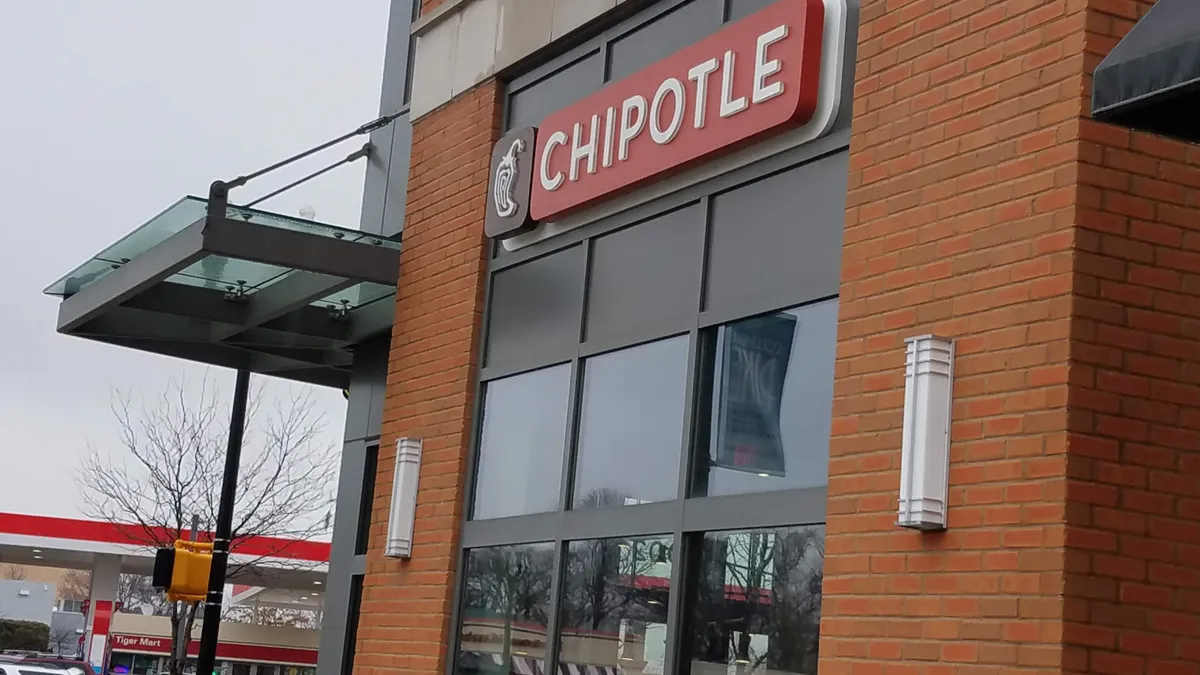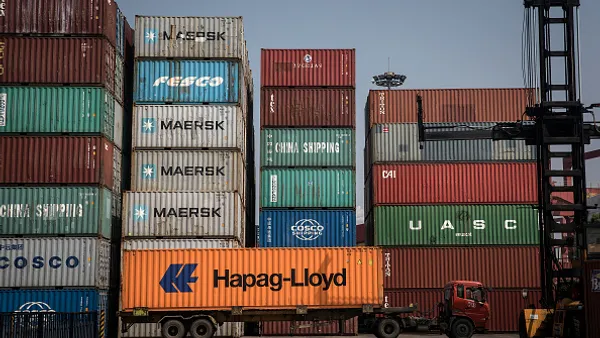Dive Brief:
- Chipotle Mexican Grill locally sourced 11% (31 million pounds) of its produce from "54 unique local farmers" in 2020, the food chain reported in a Securities and Exchange Commission filing.
- Last year, the restaurant bought $28.1 million pounds of "organic and transitional ingredients," saying that buying "organic and local ingredients" is part of its ongoing sustainability strategy. Some of the products organically and locally sourced include black beans, cilantro, tofu and avocados.
- Chipotle has also committed to work with and support farmers by creating a virtual farmers marketplace for direct-to-customer buying, contributing over $500,000 to the next generation of farmers.
Dive Insight:
Chipotle's growing use of organic and locally sourced produce and its pledge to support farmers is part of a larger trend in the food industry to build sustainability into supply chains.
Chipotle plans to keep the momentum going, setting a goal to locally source 37 million pounds of produce by the end of the year, according to reporting by CNBC. If the company can make it happen, that'd be an increase of 6 million pounds YoY.
The restaurant chain is incentivizing company leaders to meet its sourcing and environmental goals. Chipotle linked "executive compensation programs" to environmental, social and governance goals, tying 10% of annual incentives to, in part, achieving its organic-sourcing objective for 2021. A recent ING survey found that 62% of companies surveyed will most likely also tie executive pay to environmental goals this year.
Chipotle is among a growing number of food brands and grocers emphasizing local sourcing over the last year.
Danone's recently launched Honest to Goodness brand is prioritizing locally sourced ingredients for its creamer and making supply chain transparency a key consideration.
Meijer and Bashas started intiatives to increase their list of local suppliers through a virtual summit and an online platform. Walmart announced last month a decade-long ambition to spend $350 billion on local products, including items grown and assembled in the U.S.
Chipotle debuted a digital tool last year that tracks the environmental impact of its food "footprint" based on sourcing metrics, including carbon waste, water usage, soil quality, support of organic land and use of antibiotics. The tool serves to hold the company "accountable for cultivating a better world" — the goal of its sustainability plan.
By expanding local sourcing, Chipotle is able to reduce "the total distance that food needs to travel before it reaches its restaurant destination," the company stated in a press release last year. Less miles equals fewer transport emissions. And the food chain plans to announce updated emissions goals this year based on the Science Based Targets Initiative.
Sourcing locally and building deeper relationships with farmers allows Chipotle to better ensure sustainability goals by helping farmers to farm sustainably, using practices to maintain healthy land use and soil quality.
And scaling local sourcing takes finding the right farmers as suppliers, distribution partners and the right procurement strategy, since local sourcing can eliminate the traditional benefits of scale.
This story was first published in our weekly newsletter, Supply Chain Dive: Procurement. Sign up here.














